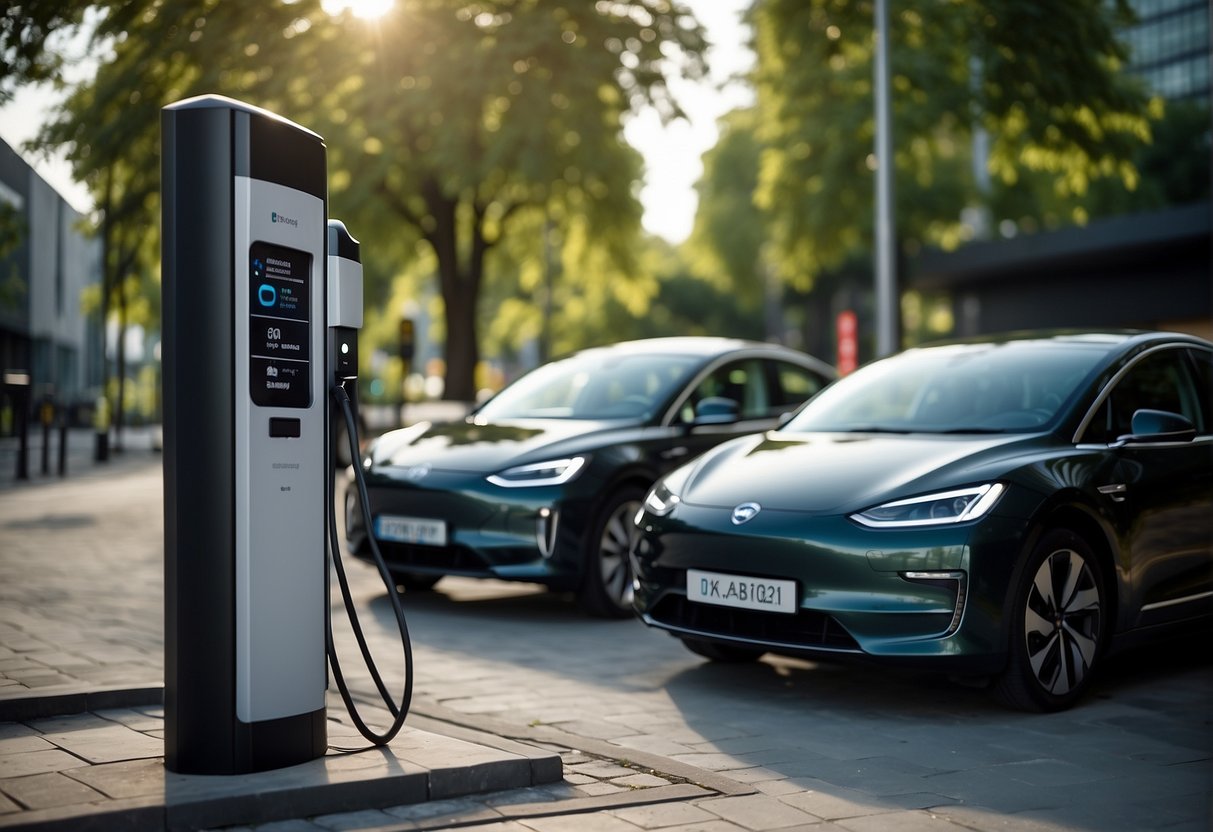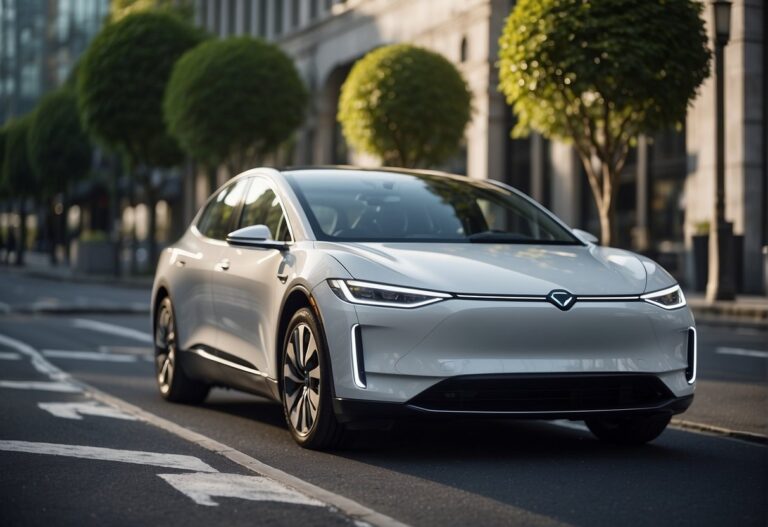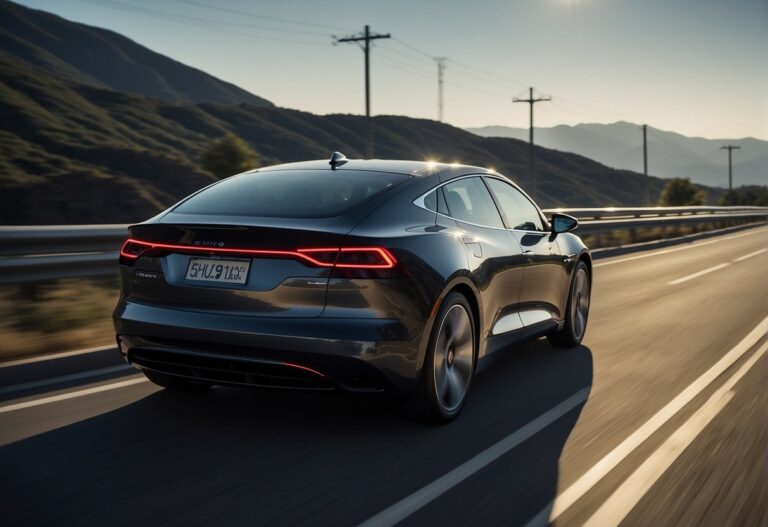Electric vehicles (EVs) have been gaining popularity in recent years as an environmentally friendly mode of transportation. However, one of the major concerns for EV owners is range anxiety, which refers to the fear of running out of battery power before reaching their destination and being unable to find a charging station. This can be a significant barrier to EV adoption, as consumers may be hesitant to make the transition from traditional gasoline-powered vehicles.
Fortunately, there are a number of solutions and advancements being developed to address EV range anxiety. These include improvements in battery technology, the expansion of charging infrastructure, and the development of software and apps to help drivers plan their routes and locate charging stations. In addition, some automakers are working to increase the range of their EVs, making them more comparable to traditional gasoline-powered vehicles. As these advancements continue to be made, it is likely that range anxiety will become less of a concern for EV owners and the transition to electric vehicles will become more widespread.
Understanding EV Range Anxiety
Defining Range Anxiety and Its Impact on EV Adoption
Range anxiety is a term used to describe the fear or stress experienced by electric vehicle (EV) drivers due to the perceived limitations of their vehicle’s driving range on a single charge. It is a psychological barrier that arises from the uncertainty of whether the EV’s battery will last long enough to reach the intended destination or the nearest charging station.
Limited range is one of the biggest barriers to EV adoption, and range anxiety is one of the main reasons why people are hesitant to switch to electric vehicles. The perception of limited range can be a significant hurdle to overcome, even if the actual range of the vehicle is sufficient for most people’s daily needs.
Psychological and Practical Aspects of Range Anxiety
Range anxiety is both a psychological and practical issue. On the psychological side, it is often the result of a lack of knowledge or awareness about EVs and their capabilities. Many people are simply not familiar with electric vehicles and how they work, which can lead to misconceptions and anxiety about range.
On the practical side, range anxiety is a real concern for some EV drivers, especially those who need to travel long distances or who live in areas with limited charging infrastructure. While the range of modern EVs has increased significantly in recent years, it is still not as far as traditional gasoline-powered vehicles can go on a single tank of gas.
To overcome range anxiety, it is important to increase awareness and education about EVs and their capabilities, as well as to continue to improve the range and charging infrastructure of electric vehicles. By doing so, more people will be willing to make the switch to electric vehicles, leading to a cleaner and more sustainable future.
Frequently Asked Questions
What strategies can alleviate concerns about electric vehicle range?
There are several strategies that can alleviate concerns about electric vehicle range. One of the most effective is to adopt efficient driving habits, such as reducing speed, avoiding rapid acceleration and braking, and minimizing the use of climate control systems. Route planning and charging etiquette can also help to maximize an EV’s range. Drivers should plan their routes in advance and choose the most efficient path to their destination. They should also be aware of the location of charging stations and plan their charging stops accordingly.
What technological advancements are reducing electric vehicle range anxiety?
Technological advancements are helping to reduce electric vehicle range anxiety. One of the most significant advancements is the development of more efficient batteries. New battery technologies, such as solid-state batteries, promise to significantly increase the range of electric vehicles. In addition, advancements in charging technology, such as fast-charging, are making it easier and quicker to charge electric vehicles.
How can improved infrastructure address electric vehicle range issues?
Improved infrastructure can address electric vehicle range issues by providing more charging stations and improving the accessibility of charging stations. Governments and private companies are investing in the development of charging infrastructure, and many are installing charging stations in public places such as shopping centers and parking lots.
What role does fast-charging technology play in mitigating range anxiety?
Fast-charging technology can play a significant role in mitigating range anxiety. Fast-charging stations can charge an EV in a matter of minutes, significantly reducing the time required for charging. This makes it easier for drivers to charge their vehicles while on the go, and reduces the need to plan long charging stops.
How are auto manufacturers increasing the range of electric vehicles?
Auto manufacturers are increasing the range of electric vehicles by developing more efficient batteries and improving the aerodynamics of their vehicles. Many manufacturers are also developing hybrid and plug-in hybrid vehicles that combine the benefits of electric and gasoline-powered vehicles.
What are the psychological aspects of EV range anxiety and how can they be managed?
EV range anxiety is a psychological phenomenon that can be managed through education and awareness. Drivers should be aware of the capabilities of their vehicles and adopt efficient driving habits to maximize their range. They should also be aware of the location of charging stations and plan their routes accordingly. Auto manufacturers and governments can also play a role in managing EV range anxiety by investing in the development of more efficient batteries and charging infrastructure.



